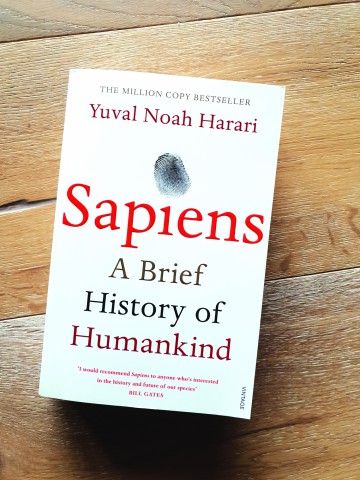
Antibiotics were like mints in my house, and it was normal for me to begin a two-week course after a hint of a cough or even theoretical infection. I even took them preventively, like before going to eat in the Old City or after a dodgy curry. I have an unshakable belief in their power and gratitude for their existence, something I trace back to a doctor explaining to a very young me how they worked.
“So they just kill the bacteria?” Ten year old me asked. “Just like that?”
“Just like that,” the doctor smiled, adding later: “With a hutch of diarrhea. Maybe.”
I was interested, and he went on about how the miracle pills hadn’t really existed for that long.
“What did people do before that?” I asked.
“Well,” he said, thinking. “They died.”

This conversation lives rent free in my head. Antibiotics were invented in 1923, and that something so essential to our continued existence came so recently is a disturbing, wildly terrifying thought. Given how much we rely on them, having had them for less than a century feels like having discovered running water in 1856 or something. For years after I would compare notes with people about when they would have died had they been born before antibiotics (my second favorite party trick next to “What are your thoughts on embalming?”).
It stands to reason that many would have died as babies, still more as toddlers infected with flues, illnesses, bite marks or even a cut on the foot. A large rabid dog, with enough incentive and a free range of motion, could decimate a small household before antibiotics. Personally I would have probably made it to about four or five, after which I would have succumbed to something humiliating like a stomach infection from an organic apple and spent the afterlife haunting houses dressed as a vengeful Victorian doll. Other friends would have made it to 12 or 13, when appendixes, broken bones, scarlet fever and a cornucopia of other threats become real. The few who would have reached adulthood (the kind of insipid people who never catch colds) would live out their days with a pantheon of STDs, so it’s a wonder anyone ever lived at all.

I saw in the papers that just this week the number of Covid deaths in the UK has surpassed the combined death toll of the Great Plague, the AIDS pandemic and every single terror attack and war since 1945. That’s one of those shock statistics that’s supposed to make your panties drop in fear. But despite the fact that the UK has been quite careful about losing white citizens to wars since WW2, the numbers are chilling. 100,000 people dead in the UK, 4 times that much in the US. Millions across the world. Add to that vaccine news, political drama, racism, institutional colorism and general despair on glittering displays everyday, and the world can seem a dreary place these days. I know that I’ve broken down twice just this week, once in front of the dairy section at Jalalsons (why pretend cottage cheese is feta? WHY) and then again when I walked into my bathroom and saw a Pollock painting that turned out to be a black mold infestation.

In trying to find a salve to this constant assault of bad news I came across the term “doom scrolling.” Turns out our habit of going through post after post of bad news is an involuntary response as new as the pandemic, defined as “an excessive amount of screen time devoted to the absorption of dystopian news” or in other words, life.
One of the things that helped me manage my pandemic burnout this week was reading the book Sapiens, which is a short history of our lethal species. I’ll leave the best bits for you to discover, but one thing the book explained was how our brains are hardwired for a world that doesn’t exist anymore, which leaves us with feelings of stress, anxiety and a proclivity for negativity disproportionate to the crises around us. Take gorging on high calorie food. Why is it that so many people today are overweight, or turn to chocolates and fries for comfort in stressful times? Because our lizard brain is coded to consume as much caloric food as possible when we encounter it, a hangover from when these foods were far rarer than pizzas today. Primeval circuitry also explains why we are drawn to negativity, in short because acknowledging threats held up avoids them, and ergo stay alive. It’s basic when you think about it.

But we spend so much of our lives pretending that we are not part of the animal kingdom or subject to its more harsher consequences (like being eaten) that the fact that we may have animal instincts running like dormant programs just under out fine words and scary statistics doesn’t compute. Knowing that gives me a degree of comfort, if only in my head.
For everything else, I’ve got Ciproxin and a phone.
Write to thekantawala@gmail.com

“So they just kill the bacteria?” Ten year old me asked. “Just like that?”
“Just like that,” the doctor smiled, adding later: “With a hutch of diarrhea. Maybe.”
I was interested, and he went on about how the miracle pills hadn’t really existed for that long.
“What did people do before that?” I asked.
“Well,” he said, thinking. “They died.”

This conversation lives rent free in my head. Antibiotics were invented in 1923, and that something so essential to our continued existence came so recently is a disturbing, wildly terrifying thought. Given how much we rely on them, having had them for less than a century feels like having discovered running water in 1856 or something. For years after I would compare notes with people about when they would have died had they been born before antibiotics (my second favorite party trick next to “What are your thoughts on embalming?”).
It stands to reason that many would have died as babies, still more as toddlers infected with flues, illnesses, bite marks or even a cut on the foot. A large rabid dog, with enough incentive and a free range of motion, could decimate a small household before antibiotics. Personally I would have probably made it to about four or five, after which I would have succumbed to something humiliating like a stomach infection from an organic apple and spent the afterlife haunting houses dressed as a vengeful Victorian doll. Other friends would have made it to 12 or 13, when appendixes, broken bones, scarlet fever and a cornucopia of other threats become real. The few who would have reached adulthood (the kind of insipid people who never catch colds) would live out their days with a pantheon of STDs, so it’s a wonder anyone ever lived at all.

I saw in the papers that just this week the number of Covid deaths in the UK has surpassed the combined death toll of the Great Plague, the AIDS pandemic and every single terror attack and war since 1945. That’s one of those shock statistics that’s supposed to make your panties drop in fear. But despite the fact that the UK has been quite careful about losing white citizens to wars since WW2, the numbers are chilling. 100,000 people dead in the UK, 4 times that much in the US. Millions across the world. Add to that vaccine news, political drama, racism, institutional colorism and general despair on glittering displays everyday, and the world can seem a dreary place these days. I know that I’ve broken down twice just this week, once in front of the dairy section at Jalalsons (why pretend cottage cheese is feta? WHY) and then again when I walked into my bathroom and saw a Pollock painting that turned out to be a black mold infestation.

I saw in the papers that just this week the number of Covid deaths in the UK has surpassed the combined death toll of the Great Plague, the AIDS pandemic and every single terror attack and war since 1945
In trying to find a salve to this constant assault of bad news I came across the term “doom scrolling.” Turns out our habit of going through post after post of bad news is an involuntary response as new as the pandemic, defined as “an excessive amount of screen time devoted to the absorption of dystopian news” or in other words, life.
One of the things that helped me manage my pandemic burnout this week was reading the book Sapiens, which is a short history of our lethal species. I’ll leave the best bits for you to discover, but one thing the book explained was how our brains are hardwired for a world that doesn’t exist anymore, which leaves us with feelings of stress, anxiety and a proclivity for negativity disproportionate to the crises around us. Take gorging on high calorie food. Why is it that so many people today are overweight, or turn to chocolates and fries for comfort in stressful times? Because our lizard brain is coded to consume as much caloric food as possible when we encounter it, a hangover from when these foods were far rarer than pizzas today. Primeval circuitry also explains why we are drawn to negativity, in short because acknowledging threats held up avoids them, and ergo stay alive. It’s basic when you think about it.

But we spend so much of our lives pretending that we are not part of the animal kingdom or subject to its more harsher consequences (like being eaten) that the fact that we may have animal instincts running like dormant programs just under out fine words and scary statistics doesn’t compute. Knowing that gives me a degree of comfort, if only in my head.
For everything else, I’ve got Ciproxin and a phone.
Write to thekantawala@gmail.com


